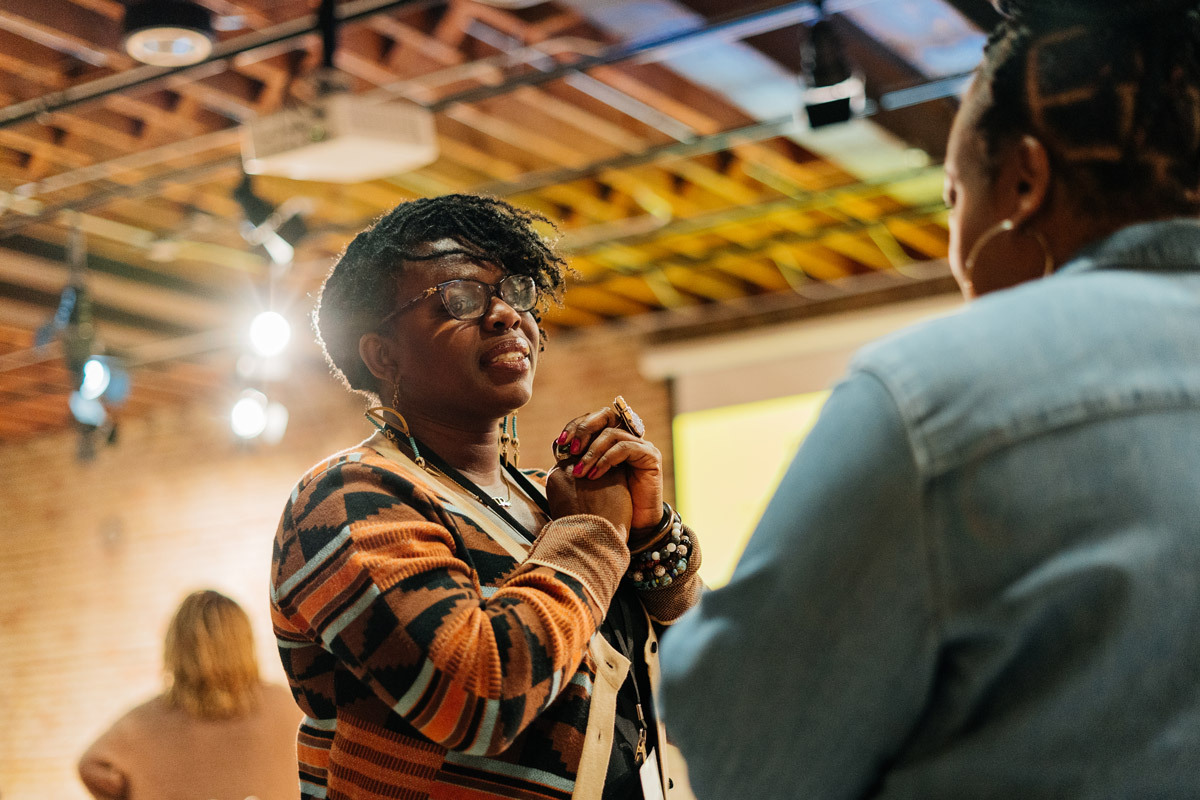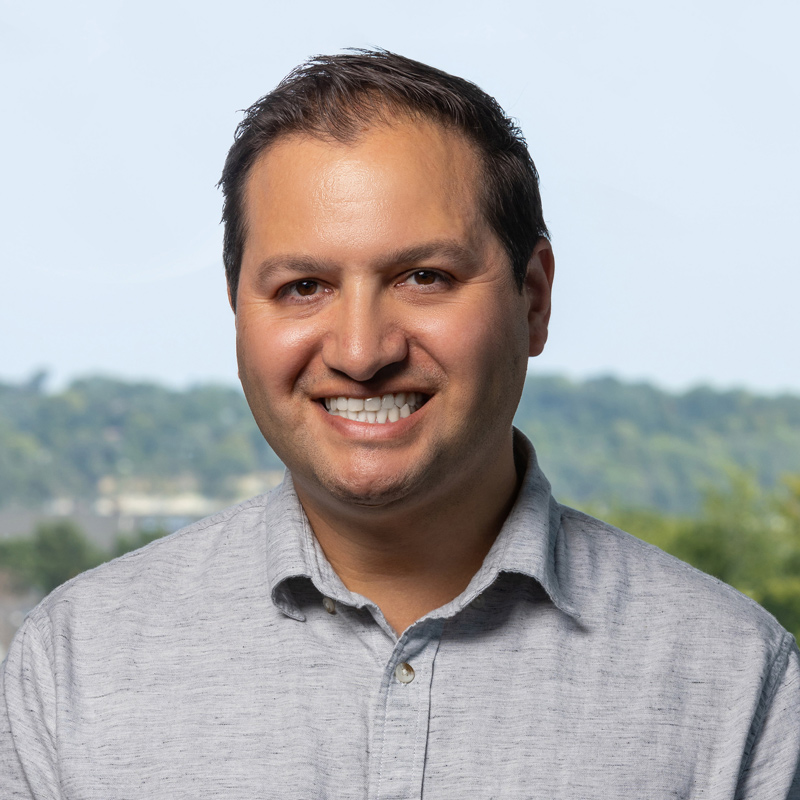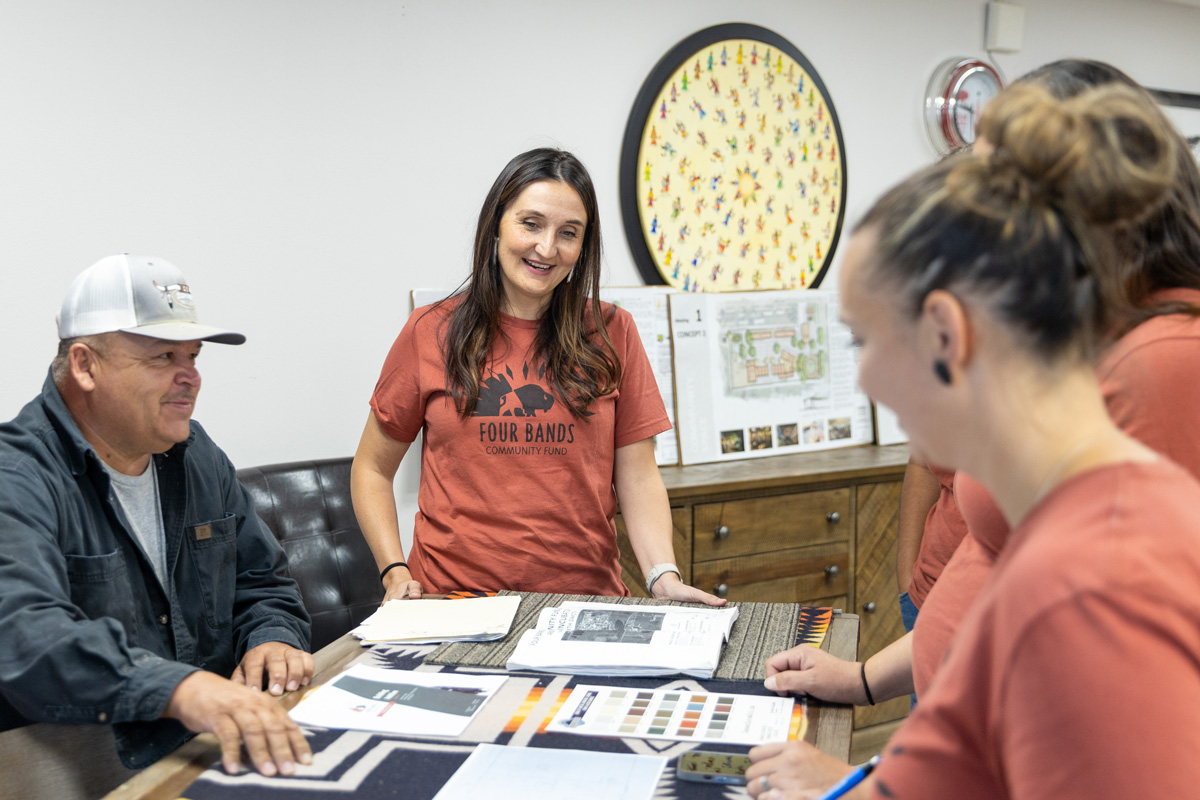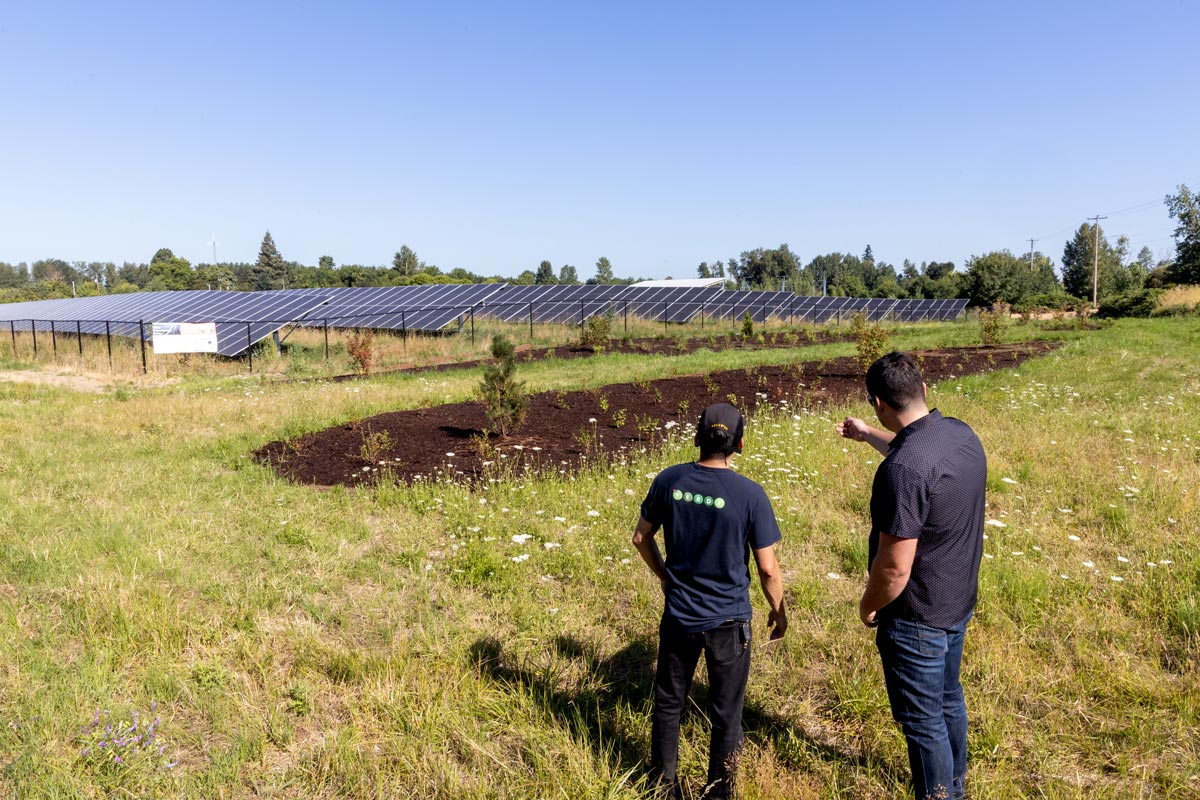Historical trauma serves as a barrier. It’s like a weight on people’s shoulders, always there, making everything harder, even as you try to get around it.
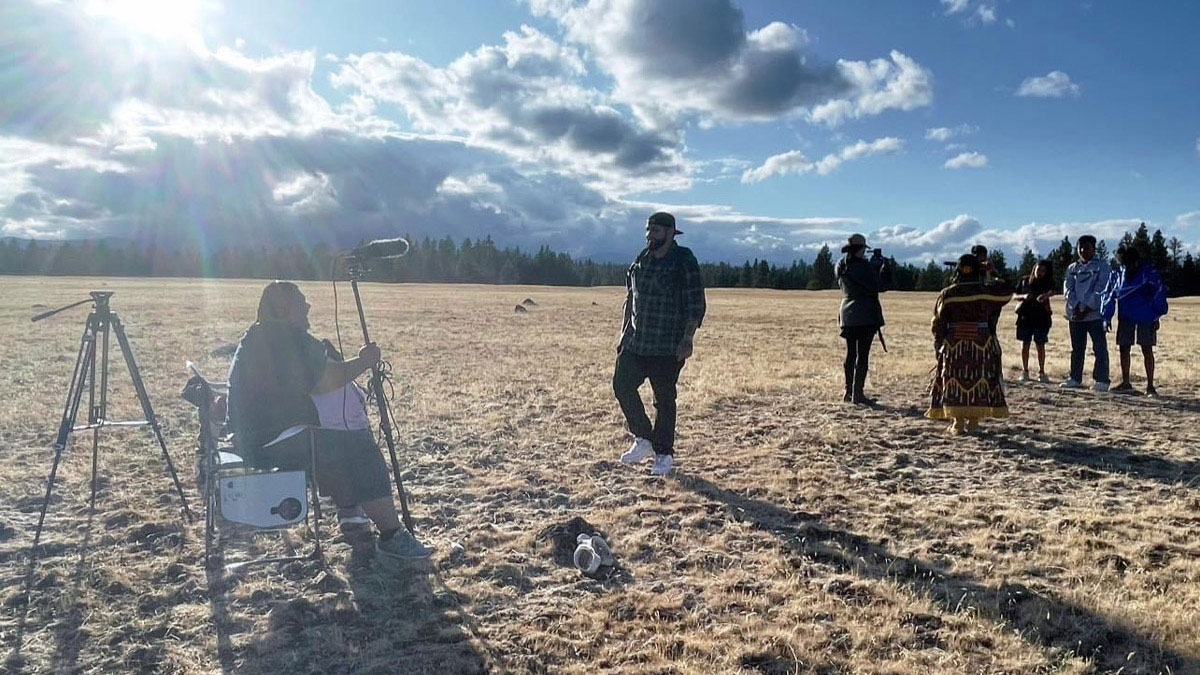
Youth ages 14 to 18 worked with actress/writer/producer Cara Jade Meyers (Wichita and Affiliated Tribes) at the 2023 Warm Springs Community Action Team’s five-day filmmaking workshop to learn the fundamentals of acting and filmmaking and create a short film. Photo courtesy of WSCAT.
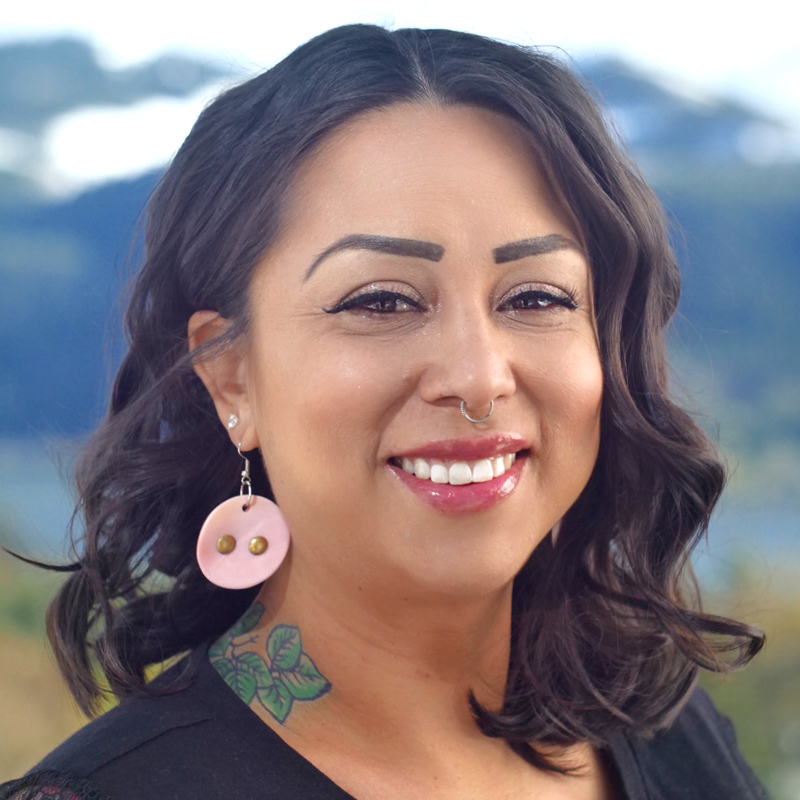
“Every tribal person who’s really looking at and actively responding to problems in Native communities is confronting their own trauma every single day.”
Carina Miller (Warm Springs, Wasco, Yakima)
Research Analyst, Warms Springs Community Action Team
“Our spirituality and culture—our whole Lakota way of life—dictates that we need to be healthy in all aspects.”
Marla Bull Bear (Sicangu Lakota)
Executive Director, Lakota Youth Development
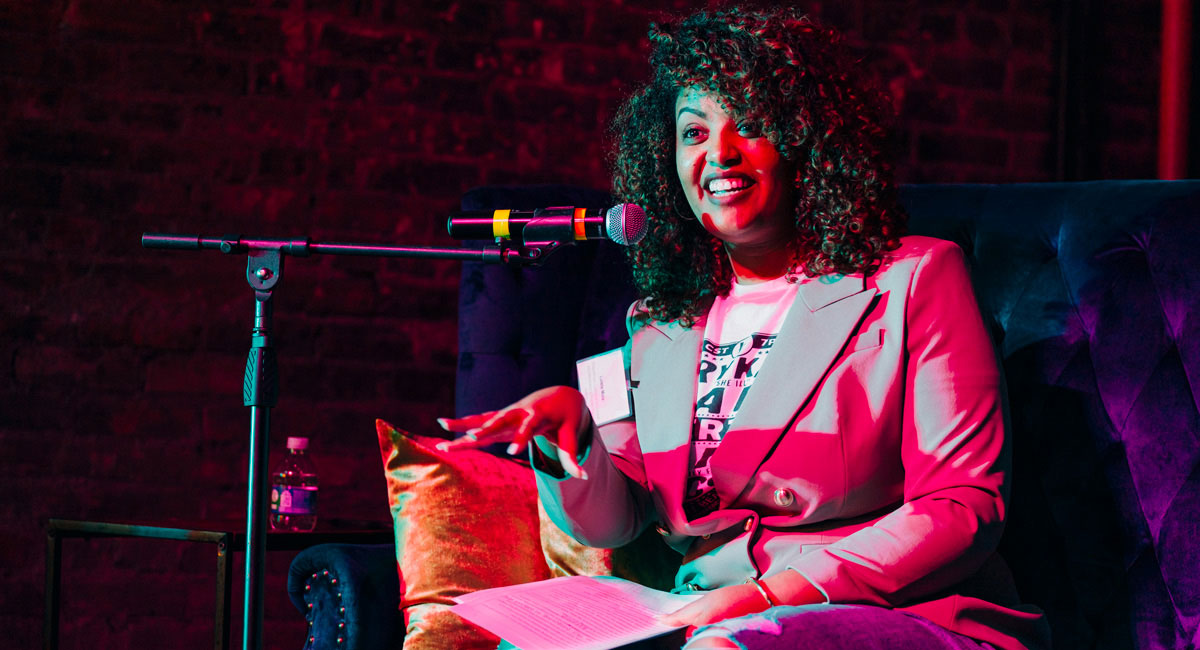
Lulete Mola, president and co-founder of Black Collective Foundation MN, in April 2022 during the Collective’s Rooting social that provides a space for connectedness, mentorship, relationship building, and learning. Photo by Awa Mally, courtesy of Black Collective Foundation MN.
“To achieve racial justice there is no lasting economic intervention without healing. You may have infrastructure, you may have material things, but you haven’t truly addressed the human component of racial justice.”
Lulete Mola
President and Co-founder, Black Collective Foundation MN
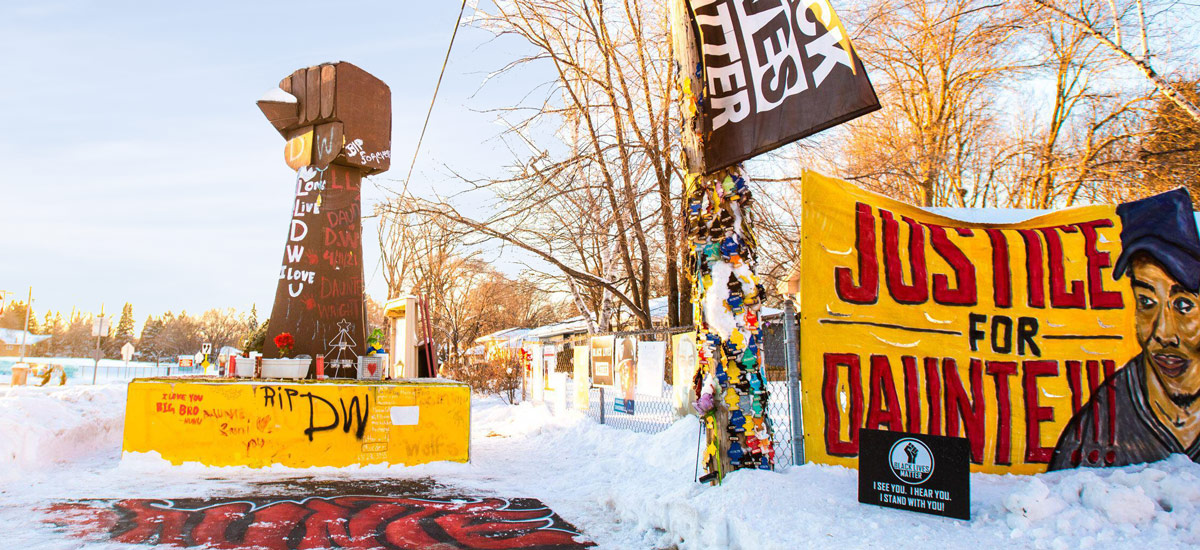
Black Collective Foundation MN’s Fellowship program supports and sustains dynamic organizations and visionaries across the state, creating a thriving ecosystem of Black-led change. Photo by Stacy Papier-Meister, courtesy of Black Collective Foundation MN.
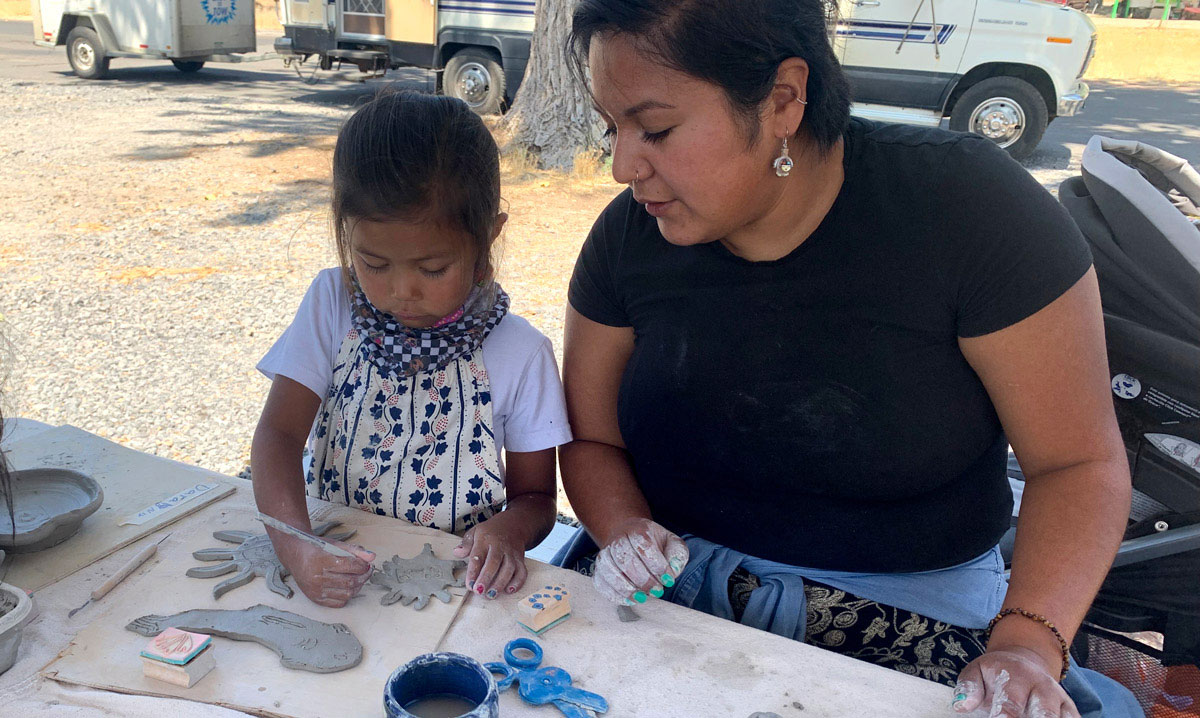
Warm Springs Community Action Team small business development specialist Mallory Smith (Oglala Sioux, Wasco, Warm Springs, Yakama, and Snoqualmie) nurtures creativity in young community members at a WSCAT youth ceramics class. Photo courtesy of WSCAT.
Healing happens through truth and reconciliation, safe and affirming places that strengthen social connections, spiritual well-being, identity, self-worth, and belonging.

